Tsundoku: The Strange Habit of Buying Books You Never Read
May 2, 2025 | by Mindseek

Did you just buy another book even though you haven’t finished the last five? Yeah… same here. And guess what? You’re not lazy. You’re just human — and there’s actual psychology behind it. Welcome to the world of Tsundoku.
This post unpacks the psychology of Tsundoku, the mental reasons behind our ever-growing
book stacks, and how to either embrace or gently overcome them. Let’s dive in.
What Is Tsundoku?
Let’s start with the fancy word first. Tsundoku is a Japanese term that literally means “letting books pile up without reading them.” It’s not about hoarding or neglect — it’s that earnest, optimistic habit of buying books with the full intention of reading them… eventually.
But they sit there, looking all wise and unread, forming a silent mountain of good intentions. Why do we do this?
Well, psychology has some juicy answers.
It Starts in the Brain: Anticipation > Completion
Here’s the kicker: Your brain is wired to crave potential more than payoff.
When you buy a new book, your brain releases dopamine — the feel-good chemical. But this isn’t a reward for finishing the book. It’s a hit you get from the anticipation of learning something new or diving into an exciting story.
Think of it like this:
- Buying a book is like signing up for a gym membership — your brain feels fitter already.
- But once the novelty fades? That dopamine dip makes finishing feel more like a chore than a
- treat.
Why You Buy Books (Even When You Don’t Read Them)
Let’s get personal for a sec.
I once bought four books on productivity in one go. You know what I did next? Took a nap. Because buying them gave me the illusion that I was already improving. Turns out, this is called the “intention-behavior gap” in psychology.
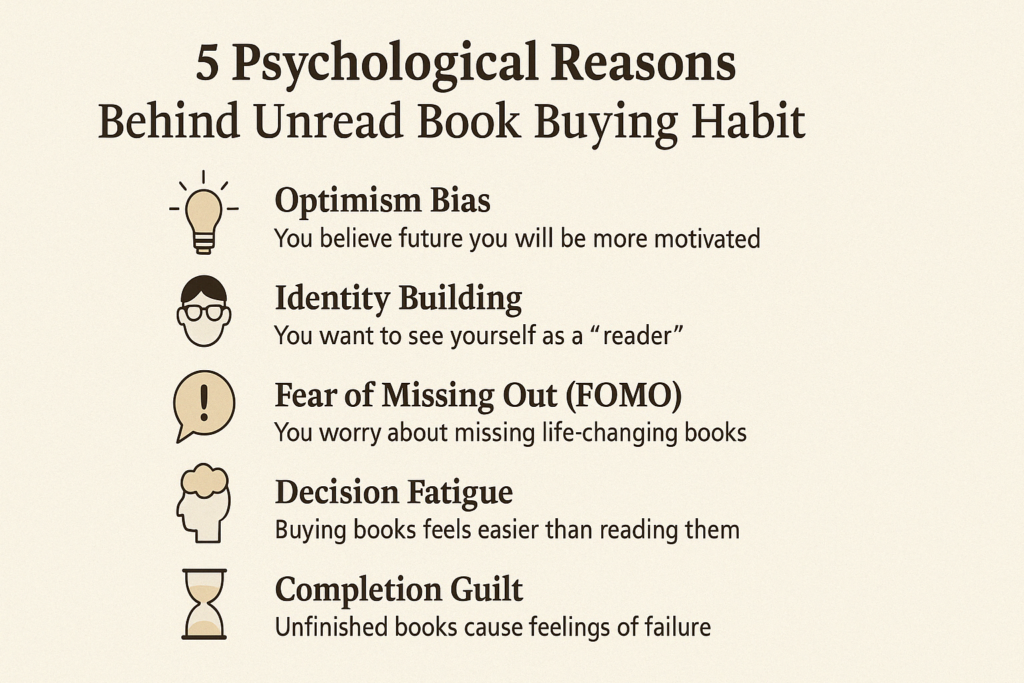
Here’s what might be going on:
- Optimism Bias – You genuinely believe that future-you will have more time, focus, and discipline. Spoiler: future-you is also tired.
- Identity Building – You want to see yourself as a “reader” or “intellectual”. You love the idea of being the kind of person who reads. Those books aren’t just purchases — they’re symbols of who you want to be.
- Fear of Missing Out (FOMO) – That new book? It might be the one that changes your life. Skipping it feels risky, so you grab it… just in case.
- Decision Fatigue – You’ve had a long day. You’re too exhausted to read, but buying something that feels productive gives your brain a shortcut to satisfaction.
- The Completion Guilt Loop – You start a book, lose interest, and feel guilty. But instead of dealing with the guilt, you chase a fresh start with another new title.
It’s not laziness. It’s psychology. And you’re not alone.
Is Tsundoku Actually a Problem?
Well, that depends. If your books are collecting dust and guilt, it can feel overwhelming. But Tsundoku isn’t inherently bad. In fact, many psychologists argue it reflects an intellectual curiosity — even if that curiosity is a bit… cluttered.
Here’s a comforting thought:
An unread book isn’t wasted — it’s potential waiting to happen.
So don’t beat yourself up. Let your bookshelf be a mirror of your curiosity, not your failures.
How to Break the Cycle (Or Make Peace With It)
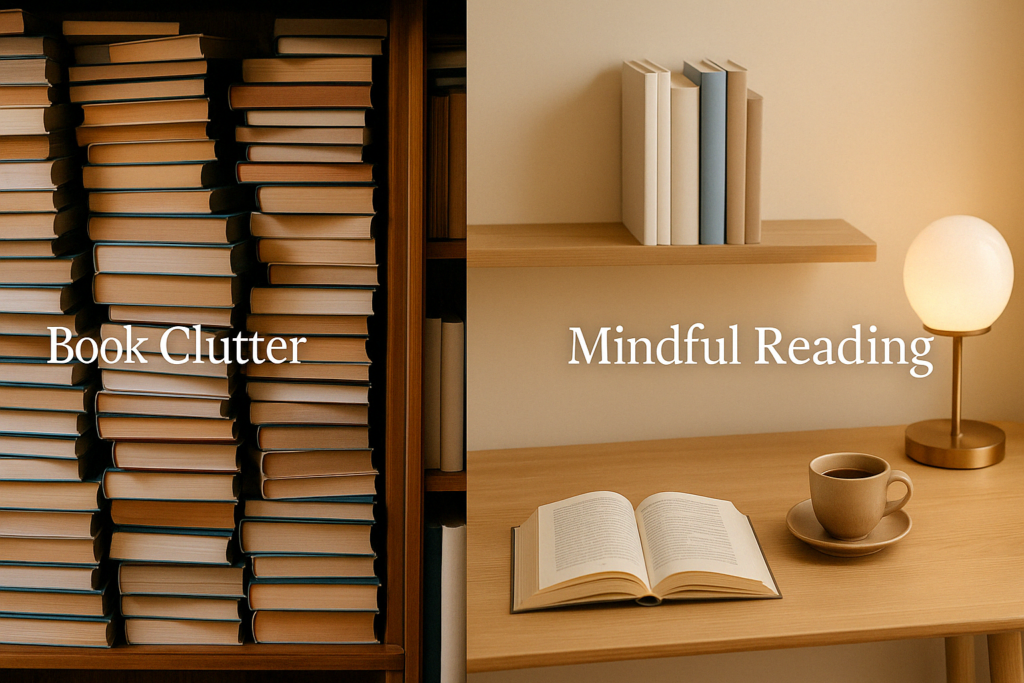
If you do want to read more of what you buy, here are some psychology-backed tips:
- Use the “One-In-One-Out” Rule: For every book you buy, finish (or donate) one. This sets a mindful boundary.
- Stack Habits: Pair reading with something enjoyable: tea, music, or cozy lighting. This builds positive associations.
- Start Small: Commit to just five pages a day. Momentum matters more than marathons.
- Go Public: Share your reading goal with a friend or online. The subtle pressure helps.
- Stop Reading What Doesn’t Spark Joy: Seriously. Life is too short for books you think you should read but don’t enjoy. Toss the guilt — no joy, no shelf space.
So… Why Do You Keep Buying Books?
Because your brain loves potential. Because curiosity is beautiful. And because ‘Tsundoku’ is a quiet, paper-filled rebellion against a world obsessed with productivity.
Take a look. Is it a pile of guilt — or a garden of possibility?
You buy books because you want to grow. Sometimes that growth is in the reading — and sometimes, it’s in knowing the book is there when you’re ready.
What’s one unread book on your shelf that you still believe you’ll read one day?
Drop it in the comments — and let’s see who else is waiting on that same book.
RELATED POSTS
View all

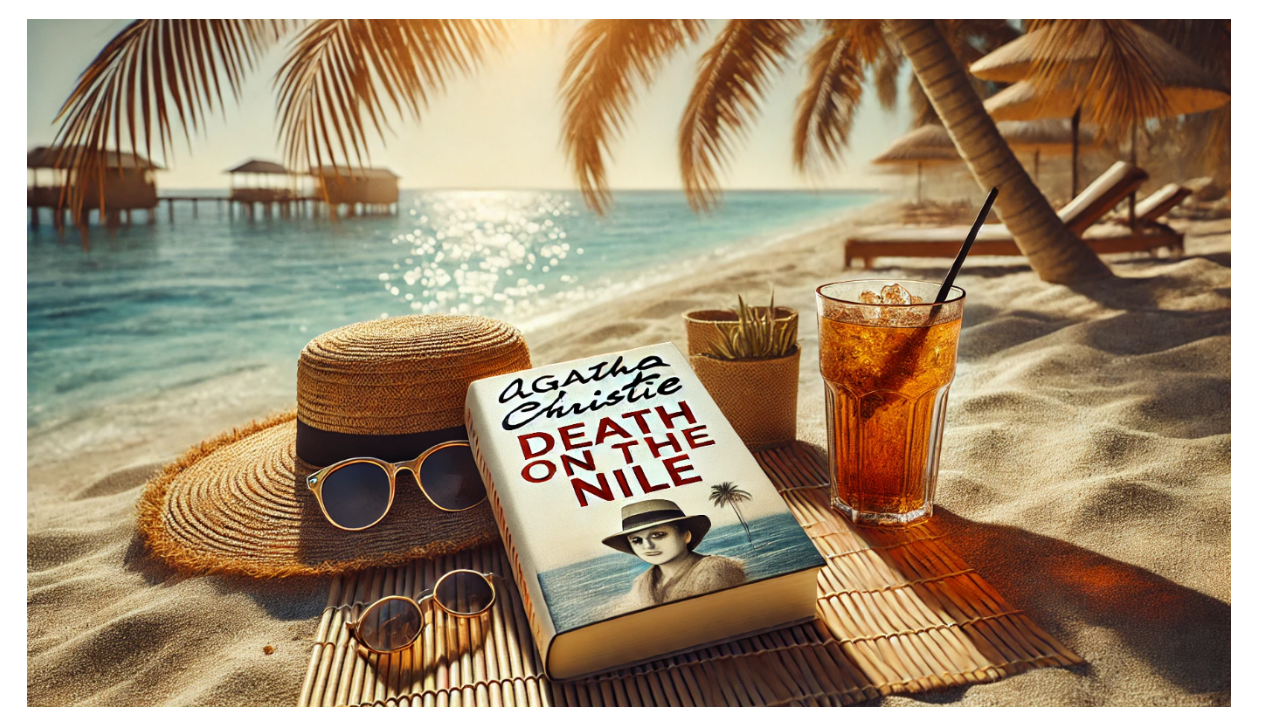
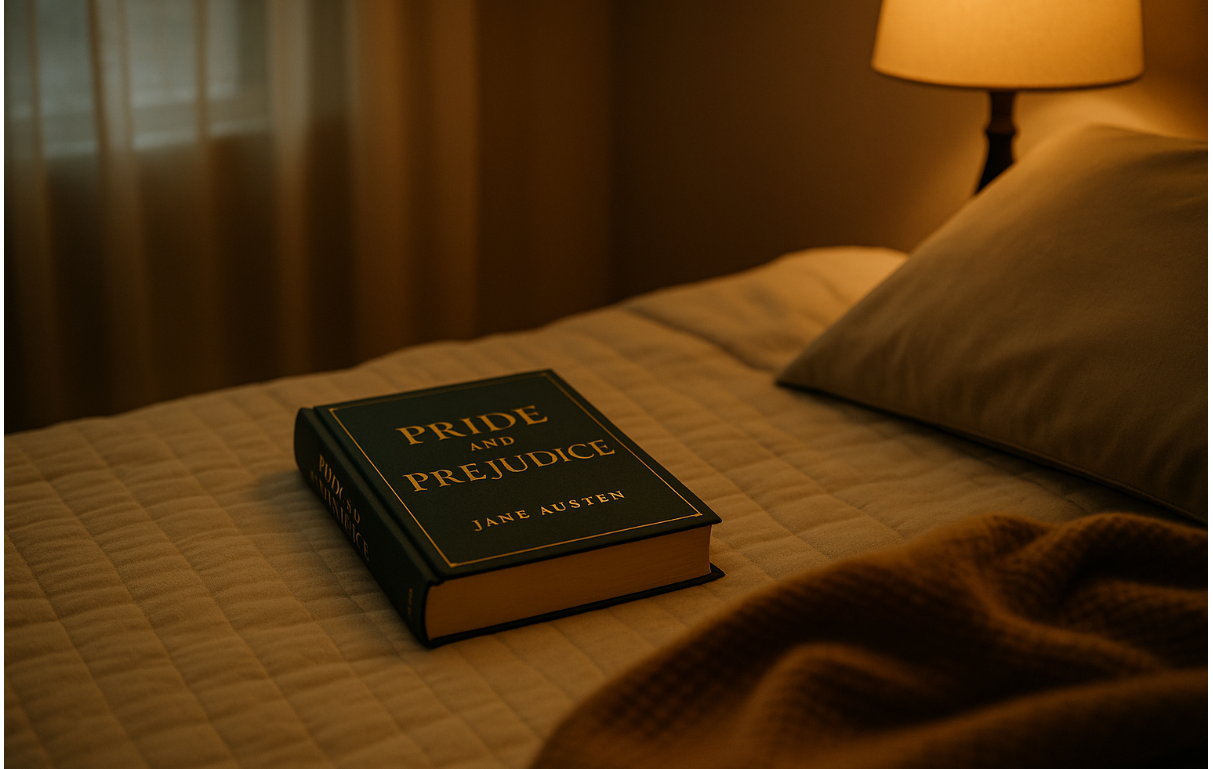
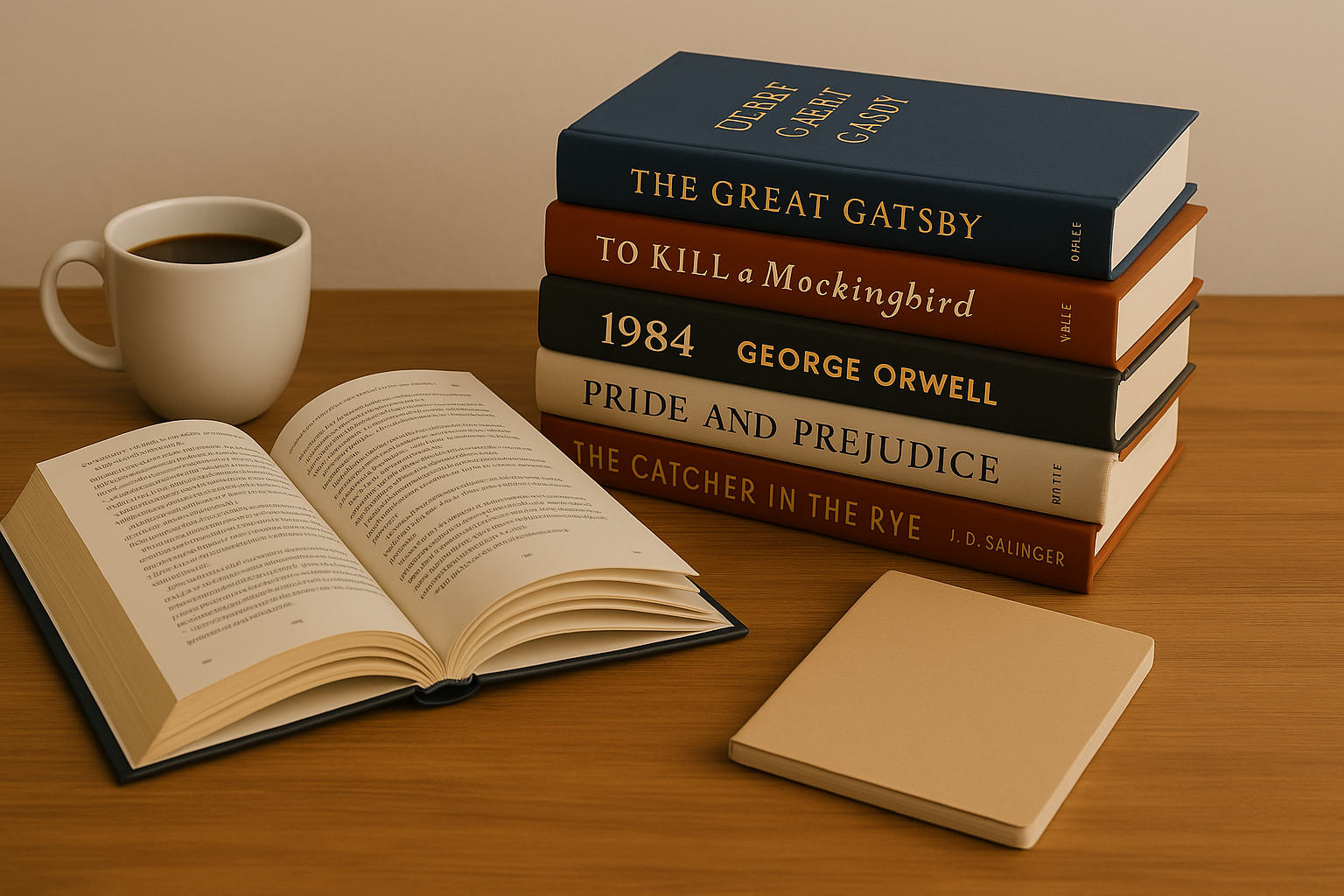
Leave a Reply